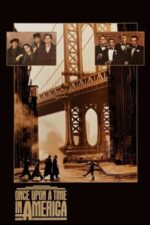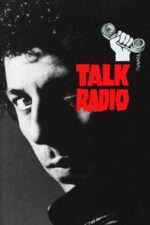Jewish American cinema, a fascinating corner of film history, has provided us with some truly unforgettable works of art that delve deep into the complexities of the Jewish-American experience. These films offer compelling explorations of identity, tradition, and transformation, set against the backdrop of both contemporary and historical events.
In "Between the Temples," we witness a deeply spiritual cantor grapple with his own turmoil while guiding a student through her Bat Mitzvah ceremony. This poignant tale of faith, connection, and transformation resonates strongly with Jewish tradition, reminding us of the transformative power of music, guidance, and community in times of crisis. The film also speaks to universal themes of spiritual seeking and human connection that transcend religious boundaries.
"Hey Good Lookin'" is a delightful comedy-drama set in 1950s Brooklyn, which showcases the vibrant energy of a bygone era while highlighting the challenges faced by young adults navigating social norms and expectations. This charming film provides an insightful look at Jewish-American life during this period, as well as offering a nostalgic trip down memory lane for those who remember these times.
"Next Stop, Greenwich Village" tells the story of a young man leaving his Brooklyn home to chase his acting dreams in the eclectic community of Greenwich Village. As he navigates through this new world, grappling with cultural differences and artistic aspirations, we witness not only the excitement but also the challenges of self-discovery and ambition. The film serves as a powerful reminder of the transformative power of following one's dreams - and the sacrifices it may require.
"Casino," although not traditionally classified as Jewish American cinema, offers a fascinating look at a Jewish protagonist navigating the treacherous world of Las Vegas in the 1970s. The film explores themes of ambition, corruption, and loyalty against the backdrop of a glamorous yet dangerous city, providing viewers with an absorbing insight into the complexities of power dynamics during this era.
"Homicide," another non-traditional entry in our list, delves into the darker aspects of crime and politics through the lens of a dedicated Jewish detective. This gripping narrative takes us on a journey into the world of Zionist activism, exposing viewers to the complexities of covert operations and ideological struggles. As our protagonist faces moral dilemmas that challenge his core beliefs and professional values, we are reminded of the high stakes involved when justice and loyalty clash.
Lastly, "Talk Radio" offers a gripping exploration of personal growth, social responsibility, and the consequences of unchecked power through the journey of its caustic talk-show host. This film serves as a timely reminder about the importance of self-reflection and accountability in positions of influence.
Each of these films contributes unique perspectives to our understanding of Jewish American culture and identity. They remind us that regardless of whether they focus on themes of spirituality, ambition, politics, or personal growth, all are inherently human experiences, deeply rooted in the universal quest for meaning, connection, and self-discovery.
In essence, Jewish American cinema offers a rich tapestry of stories that resonate far beyond their immediate settings or characters. Whether it's the struggle to maintain faith amidst crisis, the challenge of navigating new environments, the complexities of power dynamics, or the quest for personal redemption, these films invite us into worlds that compel us to think, feel, and ultimately connect with our shared human experience.
































